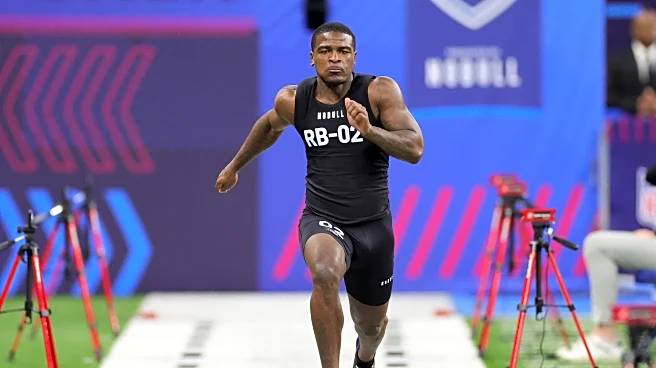What's Happening?
Singer-songwriter Kenny Loggins has requested the removal of his song 'Danger Zone' from an AI-generated video posted by President Trump on his Truth Social account. The video depicts a crown-wearing Trump in a fighter
jet labeled 'KING TRUMP,' dispersing a brown substance over protestors in New York City's Times Square. This video was released in response to the 'No Kings' protests across the U.S. Loggins, who performed the song for the 1986 movie Top Gun, stated that his performance was used without permission and expressed his disapproval of the song's association with divisive content. He emphasized the need for unity and the role of music in bringing people together.
Why It's Important?
The incident highlights ongoing tensions between musicians and political figures over the use of music in political contexts. Loggins' objection underscores the broader issue of artists' rights and the unauthorized use of their work in political messaging. While legal frameworks often allow such use if rights holders are compensated, artists frequently voice their disapproval to inform the public of their stance. This situation also reflects the contentious nature of political discourse in the U.S., where cultural symbols and media are often leveraged to influence public opinion. The response from the White House, which did not directly address Loggins' concerns, further illustrates the complexities of navigating artistic rights in political arenas.
What's Next?
The White House has not yet responded to Loggins' request for the removal of his performance from the video. It remains to be seen whether legal action will be pursued, as has been the case with other artists who have objected to the use of their music by political figures. The ongoing lawsuit by the estate of Isaac Hayes against President Trump and his affiliates for similar reasons may set a precedent for how such disputes are resolved. Additionally, this incident may prompt further discussions about the ethical implications of using AI-generated content in political communication.
Beyond the Headlines
This situation raises questions about the ethical use of AI in content creation, particularly in political contexts. The ability to generate realistic videos and audio without consent poses challenges to intellectual property rights and the authenticity of political messaging. As AI technology continues to evolve, there may be increased calls for regulatory frameworks to protect artists and ensure transparency in the use of AI-generated content. This incident also highlights the cultural impact of music and its power to influence public sentiment, emphasizing the need for responsible use of artistic works in political discourse.










